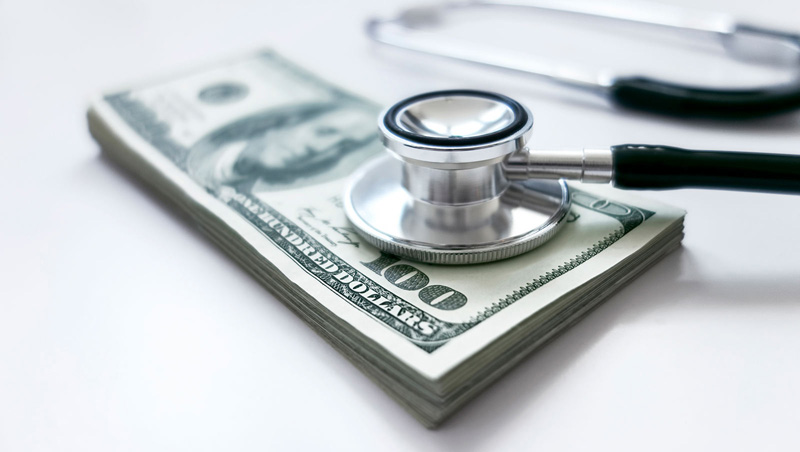
Fraudulent activities in the healthcare sector are continuously increasing at a rapid pace. Due to which the fraud analytics is becoming a necessity for healthcare industry. Healthcare industry has witnessed a number of fraud cases by physicians, doctors, medical specialists and patients. Because of this, healthcare sector has suffered in terms of finance and time.
Some of the fraudulent activities include prescription fraud, evasion of medical charges and fraudulent procurement of sickness certificates.
Some of the common factors that could be the reasons for healthcare frauds includes
A number of people obtain fraudulent procurement of sickness certificates as to claim the money from health insurance by showing fake reports.
It is not uncommon for us to hear about the cases where people procure fake sickness certificates. For instance, procurement of fake mental illness certificate to save them from the legal actions to be taken against them.
The fraudulent activities happening in the healthcare sector have several impacts. Some major impacts involve financial losses to government, prevention from legal actions & loss of money to the organizations where people get paid sick leaves by showing fake medical certificates. According to National Health Care Anti-Fraud Association, the financial losses caused due to the fraudulent activities in the healthcare is in the billions of dollars every year.
Traditional healthcare fraud detection method involve laborious, on-ground investigation. These methods need a lot of efforts and also there are chances of making false payment. Not only this, traditional method can end up taking years to collect evidence of frauds to make arrests.
While using traditional methods, even after succeeding in investigation, recovering the money is not easy and further can take years. Therefore, there is a need of better way to detect fraud as to take proper action accordingly.
The number of frauds is continuously increasing. This has become a matter of concern and there is need to take action to avoid them. For this, detection of frauds could be an option. Fraud analytics includes three type of analytics:
Descriptive analytics uses both current and historical data to identify trends and relationships. Also, this type of analytics help in identifying possible frauds through a better method. Descriptive analytics, further, perform the role of base for effective application of predictive as well as prescriptive analytics.
Predictive analytics is considered as the most effective way to prevent fraud by identification before the claim is paid. These type of solution identify the patterns which may be fraudulent as well as develop rules to get claims.
Prescriptive analytics help in estimating the benefit as well as of a particular solution & help in organizing them in order to analyze whether they are paying more to catch fraud in comparison to what they would have to pay spend as claim due to the fraud.
Inappropriate scheduling & workflow management may result in extreme workload & time wastage. By using predictive analytics in healthcare, authorities can estimate patient traffic in a better way to know peak times & through that scheduling at optimal capacity.
It's not uncommon that healthcare sector relies on optimally managed equipment and supplies. Equipment like pacemakers, MRI machines, patient monitoring machines are necessary to provide better care. Therefore, management of supply chain is important that can be done by fraud analytics.
Fraud analytics is necessary for healthcare insurance providers. As per NHCAA, financial losses due to healthcare frauds is around 300 billion dollar. Fraud analytics can help in determining healthcare frauds. Fraud analytics can be used to flag suspicious claims to review if they are genuine or not.
Furthermore, healthcare frauds not only harm the insurance providers. But its also result in higher premium expenses for consumers and less benefits. To conclude, the capability to examine all actions and highlight abnormalities that indicate fraud can save funds of insurance providers.
Healthcare industry is changing at a rapid pace. Rising popularity of healthcare communication via social media is majorly contributing to this growth. Social media is not only a place from where people gather health related information. Also, it enables two way communication between patients, providers as well as other third parties.
This wide network of healthcare industry creates a large amount of healthcare data. This data may offer incredible value to enhance efficiencies & health outcomes. Due to this demand for data analytics tool is growing which would support the market growth.
To sum up, healthcare fraud analytics has become an essential part of healthcare industry. This can be said in consideration to rising number of fraudulent activities resulting in loss of healthcare industry. Also, the other factors arising the need of healthcare fraud analytics are increasing number of pharmacy claim related fraud and inefficiency of traditional fraud detection methods.
The Global Healthcare Fraud Analytics Market is estimated to rise at a market growth of 23.0% CAGR during the forecast period.